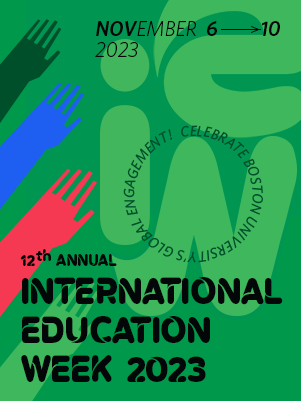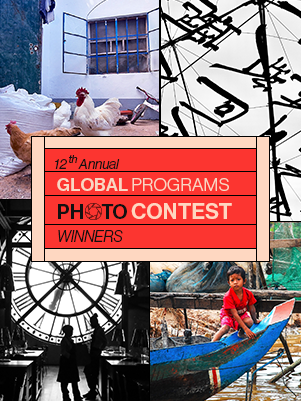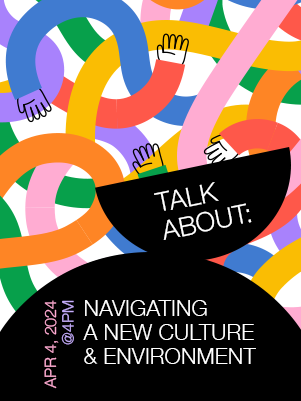Anthropology PhD Student Conducts Research in Pakistan Amid the Pandemic
Hafsa Arain examines the intersection of internet cultures, LGBTQ+ identities, and languages
In June 2020 Hafsa Arain (PhD ’24) had planned to travel to Pakistan to complete research for her dissertation in sociocultural anthropology. With the pandemic disrupting or bringing so many aspects of life to a standstill in 2020, Arain had to face the difficult reality that she’d have to postpone her research.
Arain came to anthropology via religious studies and English literature – she earned a Bachelor of Arts in English Literature from DePaul University and a Master of Arts in Religious Studies from Claremont School of Theology – and describes her background as an eclectic one. With her education rooted in the humanities and social sciences, Arain has a deep appreciation for the diversity of human cultures. Born in Karachi, Pakistan, but raised in the United States, Arain decided to focus on Pakistan and some of its citizens for her anthropological studies.
 “I chose Pakistan mostly because I think it is a really interesting place where a lot of very disparate concepts kind of come together,” she says. “All at once you have, on the one hand, these conversations about religious piety or piety movements, especially among women. You also have this burgeoning middle class that is trying to be really cosmopolitan, and that has sort of launched this massive diaspora community that’s all over the world. And then you have this new emerging queer group of various identities that are trying to come together and trying to figure out exactly what role they want to play within the country.”
“I chose Pakistan mostly because I think it is a really interesting place where a lot of very disparate concepts kind of come together,” she says. “All at once you have, on the one hand, these conversations about religious piety or piety movements, especially among women. You also have this burgeoning middle class that is trying to be really cosmopolitan, and that has sort of launched this massive diaspora community that’s all over the world. And then you have this new emerging queer group of various identities that are trying to come together and trying to figure out exactly what role they want to play within the country.”
It’s at this intersection of cultures, identities, and languages that Arain explores Pakistan and gathers research data within its queer communities using ethnographic methods: observing, interviewing, and participating. Conducting this research in-person was crucial, and she made that case clear when she gained the support of her Dean to petition for travel to Pakistan during August 2021 through the University’s Global Travel Risk Assessment Committee (GTRAC).
“I think everyone really thought about my safety, and we talked through options to make sure that I was being as safe as possible,” Arain says. “It was really helpful to get some more resources and tools in terms of who I can rely on, like the U.S. Embassy. It’s nice to know that I’m not on my own in this, even though sometimes I think a lot of anthropologists feel alone in their field sites.”
Joe Finkhouse, Global Programs’ Associate Director of Health, Safety & Security, who worked closely with Arain, said “Hafsa was exemplary in how to think about conducting research in a complicated context – how to measure and mitigate risk as well as think through options, among other key things. Conducting research is crucial, but it doesn’t obviate the need to think about the safety of the researcher – that is always top of mind for us.”
Arain adds that she views Pakistan as a particularly interesting place to study queerness and burgeoning LGBTQ+ movements because of its “long history of [having] a third gender population.”
“I guess I would say it’s analogous, although it’s not a really clean translation, to trans womanhood in the U.S.,” she explains. “But what’s really new about these queer LGBTQ movements are things like trans masculinity and lesbian and bisexual womanhood…And so I’m looking more at these new, emerging forms and seeing how they are able to legitimize themselves in this environment.”
She is also exploring the kinds of work that queer Pakistanis are having to do to convince the rest of the population that homosexuality is not a Western import but, rather, something that is indigenous to the environment. Arain asks, “What are the things they’re doing to integrate themselves into larger society in the hopes that they would get rights and access to a lot of things that states normally provide.”
In gathering her research and interviewing members of the community, she shares her own identities and background to help establish trust and let them know that she, too, wants to see their rights protected and expanded.
“I think, in any kind of case, access to a really marginalized community is really tricky for anyone who’s trying to do research,” Arain says. “I think one of the reasons that I have the kind of access I do is because I’m also a queer Pakistani woman who has something at stake in what they’re trying to achieve. We kind of see our goals as being aligned by providing one piece – the research on this from an academic perspective – which in some ways can give them some legitimacy to say, hey, people write articles about us, people write books about us. And therefore, we can sort of prove our existence beyond just, you know, our own identities.”
Because of many factors – the global pandemic being chief among them – Arain explains that her work has not been without its challenges.
“It’s definitely taken a lot of work, and it’s been a challenge to do this during COVID. But, that being said, I don’t think that you could do this research without being here in-person,” she says. “And that’s actually one of the things that I hope my research will contribute to anthropology. Because there are questions around whether or not we can do our research digitally. It would be safer, cost less, for instance. And that’s enticing, for sure. But I think that from what we know about the internet and how people use the internet is that we think of the internet as very global. But actually the internet is an extremely local thing. Our phones, our computers know where we are in the world and tailor our internet experience to where we are. So how people use dating sites, for instance, I wouldn’t be able to know that without being here [in Pakistan] in-person and scrolling through the dating apps to see what does queer dating look like?”
Through all of this, Arain deeply appreciates and respects the fact that research can be extractive and painful for people, especially those from marginalized or disadvantaged communities. And with a thoughtful and gracious mindset, she also understands how her work can help shed light on their experiences.
“I don’t take lightly the fact that they share their stories with me,” Arain says. “And I don’t sort of expect them to do that without me offering something up in return, or at least some reassurance. And for them, I guess some hope that what they’re sharing with me will lead to some kind of change or will lead to some kind of support for them down the road.”




